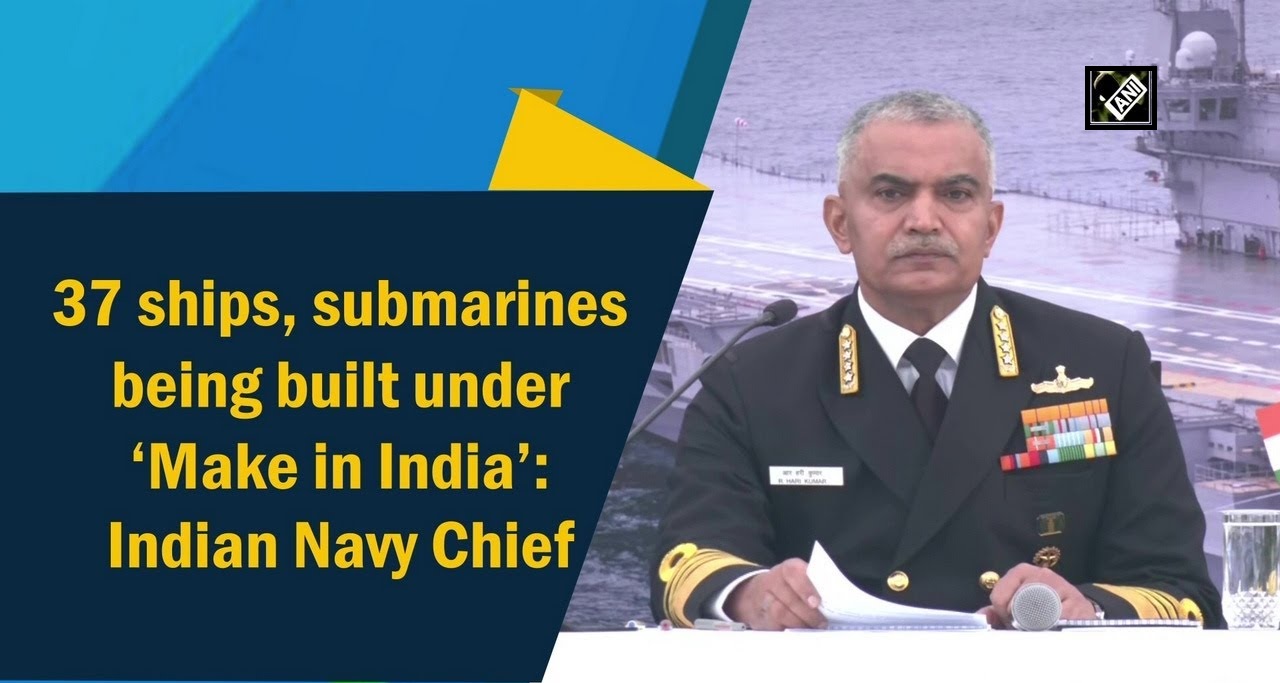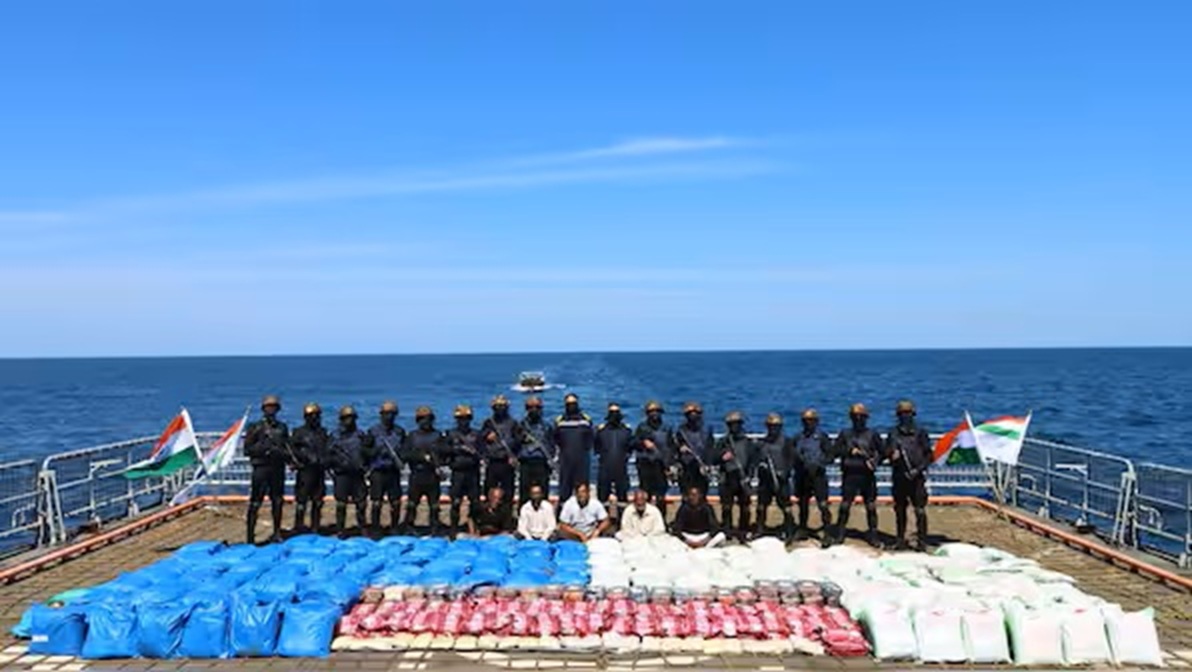The Indian navy has taken a lead as always over the sister services viz. the Army and Air Force in going ahead in a big way over the Make in India initiative. A quick look at the Idex scheme – Innovations under Defence Excellence (IDex) challenges on the Idex website would be a testimony to this statement. The DIO (Defence Innovation Organisation) was created in 2018 along with IDEX to function as the executive arm of DIO, carrying out all the required activities while DIO would provide high level policy guidance to iDEX. iDEX aims at creation of an ecosystem to foster innovation and technology development in Defence and Aerospace by engaging Industries including MSMEs, start-ups, individual innovators, R&D institutes & academia. And provide them grants/funding and other support to carry out R&D which has good potential for future adoption for Indian defence and aerospace needs.
IDEX Challenges
The details of all iDEX challenges launched till date are given below in a chronological order with the count of Indian Navy challenges to estimate approximate extra workload this has generated for the Navy.
DISC #1 : Hon’ble Raksha Mantri Smt. Nirmala Sitharaman launched the ‘Defence India Startup Challenge (DISC) on 4th Aug 2018 at Bengaluru, wherein innovators, organizations as well as individuals were presented with eleven ‘Problem Statements’ for resolution.
Approximately 500 applications were received in the first leg of the challenge, of which a total of 28 Winners were shortlisted to be considered for grant of funds for prototype development and possible commercialization thereafter.
DISC #2 : The closing date for receiving the applications was 31 Jan 2019 and the Proof-of-Concept winners were announced during the Startup/Innovation themed day scheduled on Day 2 of Aero India 2019 on 21 Feb 2019. A total of 28 applicants for the 4 Problem Statements fielded in DISC II were felicitated and awarded ‘Certificates of Recognition’ by the Hon’ble RM during the Startup Day.
DISC #3 : The 3rd iteration of the DISC had 3 new challenges from the Indian Army, Navy, and Airforce.
DISC #4: This had 11 challenges with 2 from Navy.
DISC #5: The 5th edition of DISC was launched with 35 Problem Statements(PS) from Armed Forces and OFB/DPSUs for resolution by startups & innovators. 5 challenges were from Navy.
DISC #6: The 6th edition of DISC was launched with 38 Problem Statements(PS) – with 1 from Navy
IDEX PRIME : With an increased grant amount of Rs 10 cr, iDEX PRIME was launched with six problem statements from the Armed Forces for resolution by startups & innovators.
DISC #7: The 7th edition of DISC was launched with 69 Problem Statements(PS) from Indian Navy for resolution by startups & innovators. This was the biggest list given by Indian navy and most of the projects had 2 winners thus increasing the number of companies which needed to be interacted with by IN.
IDEX PRIME (SPRINT): The 1st edition of iDEX Prime (SPRINT) was launched with 6 Problem Statements(PS) from Indian Navy for resolution by startups & innovators.
IDEX PRIME (SPACE): under Mission DefSpace was launched with 12 Problem Statements (PS) aimed at developing technologies addressing every stage of a space mission – from mission planning to satellite data analytics
DISC #8: under Mission DefSpace was launched with 23 Problem Statements aimed at developing technologies addressing every stage of a space mission – from mission planning to satellite data analytics
DISC #9: With the new age of digitization and growth in cyber technologies, Cyber security related threats and challenges are not limited to the digital world but have become a matter of National Security. Cyberspace is a continuously evolving technology area. Ministry of Defence, Government of India, strives to stay ahead of cutting-edge technologies and promote innovation and research & development in the Indian industry, in the cyber domain. 3 challenges were from navy
INDUS X: INDUS-X Mutual Promotion of Advanced Collaborative Technologies (IMPACT) Challenges are problem statements being launched jointly by Indian Ministry of Defence’s Innovations for Defence Excellence and the U.S. Department of Defense Innovation Unit for promoting co-development among the startups of the two nations under the umbrella of INDUS-X
IDEX 4 FAUJI: The objective of iDEX4Fauji program is to harness the knowledge and insights of in-service soldiers and co-create those solutions sustainably with iDEX-supported startups. The program would create a mechanism to facilitate the service personnel in providing their feedback/ideas which could enable them to upgrade the existing equipment, or improve them with innovations. This would also help in deriving more value and life from the existing hardware available in the field formations. In this process, they would also learn structured innovation and entrepreneurship skills, which can be used for expanding India’s defence manufacturing base over the years. 5 challenges are from navy.
IDEX PRIME (X): With an increased grant amount of Rs 10 cr, iDEX PRIME (X) was launched with Thirteen problem statements from the Armed Forces for resolution by startups & innovators. 2 challenges were from navy.
DISC #10: DIO in its efforts to enhance the innovation capabilities for the Armed Forces of India in the field of advanced detectors, imaging , sensors, Artificial Intelligence, Data Analytics and other cutting-edge technologies launched DISC X. – 3 from navy
DISC #11: The 11th edition of the DISC was launched with 22 Problem Statements(PS) from the Armed Forces and DPSUs for resolution by startups & innovators. 5 challenges were from Navy
New ADITI Scheme
This is a new endeavour of iDEX DIO, DDP to support the development and acceleration of innovation in critical and strategic deep-tech technologies which are in the nascent stage of research & development in the country. 5 challenges are from Navy. Highlights of ADITI Scheme are :
• Quantum of Grant up to 50% of product development budget (PDB) with maximum limit of Rs. 25 Crore, leading to a PDB around Rs. 50 Crore or beyond.
• Around 30 critical and advanced technologies which are critically required for national security and where the country does not have existing capabilities have been provisioned to be developed under ADITI. Such technologies shall have core Defence applications and may also have export potential.
Increased Workload
From the details provided at para 2, it can be concluded that the main workload for Indian Navy was created during iDEX # 7 challenge where almost 69 challenges were given and many to 2 companies. The progress of these projects was demonstrated successfully during the Swavlamban event at Delhi on 23 Oct. However, the additional projects that have been generated have also created a window for different directorates of Naval Headquarters steering the projects to interact with more than 100 companies on 69 topics. Assuming a grant of approximately 1.5 crores for each project (since balance 50 % is funded by company), the government is likely to invest around 150-200 crores in these challenges.
For smooth functioning and coordination with the Navy, it is important that adequate staff be available to interact with the companies so that the projects can see the light of the day. Being very niche projects, they will also provide an opportunity for the service personnel to interact with experts in respective fields and grow. Therefore available options maybe considered to augment the manpower for supporting Make in India Initiative.
Conclusion
There is a need to implement measures to retain specialists officers within the Navy. This could involve addressing factors that contribute to attrition, such as inadequate career progression opportunities and work-life balance issues while in service and also drafting policies for re-deploying them post retirement. Many specialists officers would be willing to continue in service if absorbed in such R&D activities. The knowledge and wisdom of many retired officers can also be exploited. Consider re-employment for officers like in the Army with specific experience in areas as required for specific iDEX projects. These specialists can establish a bridge between academia and the Armed Forces and could accelerate the implementation of the ‘Make in India’ initiative in defence and aerospace.
Title image courtesy: ANI
Disclaimer: The views and opinions expressed by the author do not necessarily reflect the views of the Government of India and Defence Research and Studies





